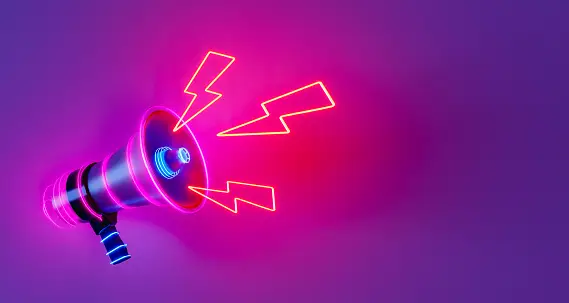
In the ever-evolving landscape of business, public relations (PR) plays a pivotal role in shaping brand image, managing reputation, and fostering meaningful connections with stakeholders. Many entrepreneurs and small business owners grapple with the decision of whether to handle their PR efforts in-house or enlist the expertise of a
PR agency. This comprehensive guide will explore the pros and cons of both approaches to help you determine the best course of action for your unique circumstances.
Understanding PR
Before delving into the debate of in-house versus agency PR, it’s crucial to grasp the essence of public relations. At its core, PR involves strategic communication to cultivate a positive perception of a brand among its target audience. This encompasses various activities such as media relations, content creation, event management, crisis communication, and social media engagement.
The Case for DIY PR
- Cost-Effectiveness: One of the primary reasons businesses consider handling PR internally is to cut costs associated with hiring an external agency. By leveraging existing resources and personnel, DIY PR can be significantly more economical, especially for startups and small enterprises operating on tight budgets.
- In-Depth Knowledge: Nobody knows your business better than you and your team. Handling PR internally allows for a deeper understanding of your brand, values, and objectives, which can translate into more authentic and tailored communication strategies.
- Control and Flexibility: With in-house PR, you have full control over messaging, timing, and strategy execution. This flexibility enables swift adjustments to align with evolving business goals or market dynamics without relying on external approvals or processes.
- Direct Communication: In-house PR facilitates direct communication channels between your team and stakeholders, fostering stronger relationships and ensuring messages are conveyed accurately without being diluted through intermediaries.
Challenges of DIY PR
- Resource Intensity: While cost-effective in theory, DIY PR requires significant time, effort, and expertise. Managing PR activities alongside core business functions can strain resources and divert attention from critical operational tasks.
- Skill Requirements: Effective PR demands a diverse skill set encompassing writing, media outreach, crisis management, and analytics. Without prior experience or training, navigating these complexities can be daunting and may result in suboptimal outcomes.
- Limited Networks: Building and maintaining media relationships is a cornerstone of successful PR. In-house teams often lack the extensive networks and industry connections that PR agencies cultivate over time, which can limit opportunities for media coverage and partnerships.
- Risk of Bias: Internal biases and groupthink may inadvertently influence PR strategies, hindering objectivity and inhibiting outside-the-box thinking. External PR agencies offer fresh perspectives and impartial insights that can enrich campaign creativity and effectiveness.
The Advantages of Hiring a PR Agency
- Expertise and Experience: PR agencies employ seasoned professionals with specialized skills and industry know-how. Leveraging their expertise can unlock strategic opportunities, amplify brand visibility, and navigate complex PR landscapes with precision.
- Comprehensive Services: From media relations and crisis management to social media strategies and influencer collaborations, PR agencies offer a diverse suite of services tailored to meet your specific needs. This holistic approach ensures all facets of your PR efforts are meticulously executed and integrated.
- Access to Networks: Established PR agencies boast extensive networks comprising journalists, influencers, industry insiders, and key stakeholders. Leveraging these connections can open doors to coveted media placements, high-profile partnerships, and lucrative opportunities for brand exposure.
- Scalability and Flexibility: PR agencies possess the scalability to adapt to fluctuating demands and scale PR initiatives according to your business growth trajectory. Whether you require ongoing support or project-based assistance, agencies can tailor their services to accommodate your evolving needs.
Drawbacks of Hiring a PR Agency
- Cost Considerations: Engaging a PR agency entails financial investment, which may be prohibitive for cash-strapped startups or small businesses with limited budgets. While the value of agency expertise is undeniable, weighing the costs against potential returns is essential to ensure alignment with your financial goals.
- Communication Challenges: Despite their expertise, PR agencies may encounter communication barriers or misunderstandings when aligning with your brand’s vision and values. Establishing clear communication channels and fostering open dialogue is paramount to mitigate the risk of misalignment.
- Dependency Issues: Outsourcing PR functions to an external agency relinquishes a degree of control over messaging and strategy implementation. Over-reliance on agency support without fostering internal PR capabilities may pose challenges in the long run, particularly during critical junctures or transitions.
Conclusion
In the perennial debate of DIY PR versus agency representation, there is no one-size-fits-all solution. Both approaches offer distinct advantages and drawbacks, necessitating careful consideration of your business objectives, resources, and capabilities. While DIY PR affords cost-effectiveness and autonomy, agency support brings expertise, networks, and scalability to the table. Ultimately, the decision hinges on striking a balance between your strategic goals, budget constraints, and capacity for resource allocation. Whether you opt to navigate the PR landscape independently or enlist the aid of a seasoned agency, prioritizing authenticity, innovation, and stakeholder engagement remains paramount in shaping a compelling and resonant brand narrative.
click
here to visit website
 In the ever-evolving landscape of business, public relations (PR) plays a pivotal role in shaping brand image, managing reputation, and fostering meaningful connections with stakeholders. Many entrepreneurs and small business owners grapple with the decision of whether to handle their PR efforts in-house or enlist the expertise of a PR agency. This comprehensive guide will explore the pros and cons of both approaches to help you determine the best course of action for your unique circumstances.
In the ever-evolving landscape of business, public relations (PR) plays a pivotal role in shaping brand image, managing reputation, and fostering meaningful connections with stakeholders. Many entrepreneurs and small business owners grapple with the decision of whether to handle their PR efforts in-house or enlist the expertise of a PR agency. This comprehensive guide will explore the pros and cons of both approaches to help you determine the best course of action for your unique circumstances.



